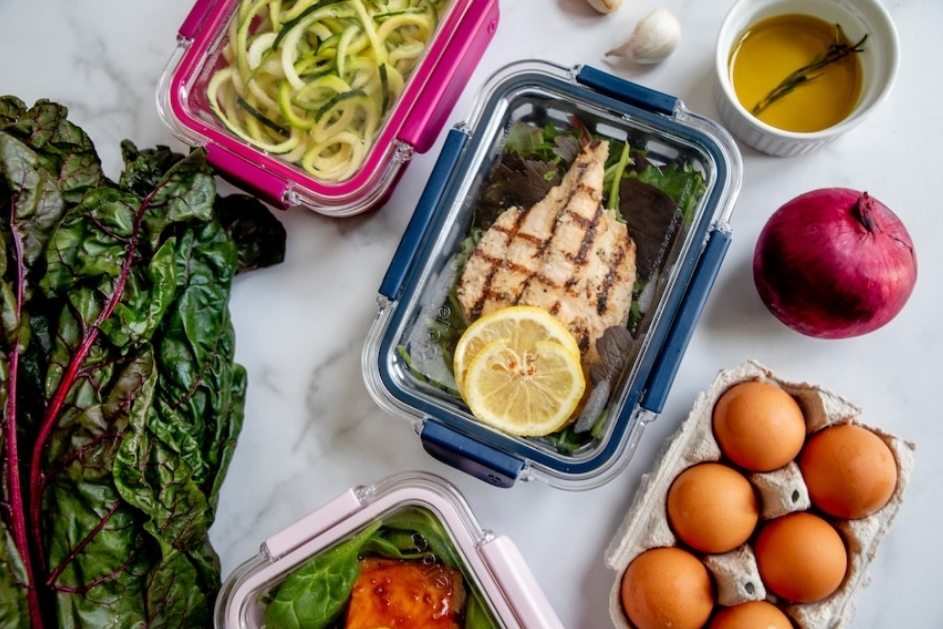Snacks and treats become ‘luxury items’ as Australians cut back on indulgences to combat rising grocery prices, new data shows

By
Tom Williams
Those aged over 45 and on low incomes are cutting back on snacks and indulgences the most, according to new research.
Half of Australians are cutting back on purchasing snacks or indulgences and are now treating them as luxury items, according to new research.
Key points:
Australian grocery shoppers are cutting back on snacks, indulgences, meat and premium goods, new data shows
The average weekly spend is up only $1.20 since last year, as people reshape their priorities
An expert says one positive is that people are eating at home and eating their leftovers more often
Data from a NielsenIQ survey of more than 5,000 Australians found that almost three in five of us were likely to avoid purchasing snacks and treats like chocolates, desserts and premium nuts, in order to cope with rising supermarket prices.
The survey, released on Thursday, found the average weekly grocery spend was only up $1.20 since last year, to around $200 — indicating shoppers have been cutting back in certain areas to make their money go further.
Those aged over 45 and on low incomes are cutting back on snacks and indulgences the most, according to the data.
One of them is Kerry Moore, a 67-year-old Queensland man who retired a decade ago, but has returned to work and drastically changed his shopping habits to cope with cost-of-living pressures.

Pensioner Kerry Moore says he’s returned to work and changed his shopping habits to cope with the cost of living.
Mr Moore says he now sees snacks as luxuries, is making his own cakes, bread and frozen chips, and is cutting back on some meals and necessities to get by.
“I don’t have breakfast now. I can’t afford that, so I cut that out. I’ll have lunch, and then at night-time I might have some muesli. That’s it,” he says.
“There are times I’ve had to go without my medication. I make my own bread, I make my own muesli. When I’m cooking something I’ll buy the cheapest stuff.”
Buying snacks a ‘low priority’ for many
Sarah Connelly is the director of Product of the Year, which commissioned the NielsenIQ survey.
She says its findings show Australians’ shopping patterns “have shifted considerably” during the cost-of-living crisis.
“Whilst snacks and treats were commonplace in the shopping trolley before living expenses started to increase exponentially, these are now classed as luxury items rather than a need, with many shoppers viewing snacks as a low priority when it comes to feeding the family.”
Clare Collins AO is a laureate professor in nutrition and dietetics at the University of Newcastle.
She says people often forget to budget for treats which they don’t buy at the supermarket, and may need to reassess what they are purchasing when buying groceries.
“Because we just tap and we don’t physically hand over cash anymore, I think it’s very easy to have food budget creep,” she says.
“If you take the time to factor it all in — from the chocolate bars when you’re paying for petrol, to the pub and club meals, through to the coffees and the takeaways — then you can work out how much are you spending on that, and what is realistic for your household.
“That can really help people put in perspective why they, in fact, may need to spend a little bit more at the supermarket, but still save on their food and drink budget overall.”

Clare Collins AO says shoppers need to track all of their snacks and convenience meals when budgeting.
Shoppers switch to home brands, cut back on takeaway
While around half of shoppers are likely to avoid snacks and indulgences, many are using other tactics to keep their grocery bills in check.
The NielsenIQ survey found 86 per cent of Australians were now using cost-saving techniques, such as switching to home brands, buying cheaper alternatives, cooking more at home, eating their leftovers and cutting back on food delivery and takeaway.
Mr Moore, who lives in the small town of Theodore about 565 kilometres north-west of Brisbane, says he hasn’t bought takeaway food “for a couple of years”.
When he travels more than 100 kilometres to do his shopping, he says he’s opting for cheaper cuts of meat, and switching to cheaper brands.
“I used to eat steak, but I can’t have steak no more,” he says.
“I’ll squeeze the mince out of sausages rather than pay the high prices for steak, and make my own sausage rolls just to save a few bucks.”
Professor Collins says switching to home brands can sometimes give people healthier options, and switching to cheaper cuts of meat may just require a little more thought or careful cooking.
“The hard thing for people will be that now you have to think about it a bit more,” she says.
“We’ve been able to supermarket shop on auto-pilot and not really think about it, but now you’re trying to find that extra money, you have to think about it, but there are things in the supermarket that can help you.”
The NielsenIQ survey found that while many Australians thought quality and health credentials were important when choosing to try a new product or brand, price was still the main deciding factor.
Mr Moore says he is cutting back on some necessities so that he has money available for rising prices on others.
“So that at the end of the shop you still end up with the products you need, even though some of them are very substandard products, which are terrible. Like the cheapest toothpaste or the cheapest air freshener,” he says.
“I shop around. I’ll check the prices online and do comparisons, and then I’ll go between three different supermarkets if I have to.”
Some ‘positive effects’ of budget tightening
Professor Collins says there are some clear benefits from people eating at home more often, and eating more of their leftovers.
“To me, that is a positive effect of tightening our budget belts. It’s not just for saving money — there is something about home-cooked meals that is magic,” she says.
“When you look at the research, it says families where more meals are cooked at home and families sit at the table, kids do better at school, adolescents have better mental health, and families eat healthier food.
“People are returning a little bit back to what might seem old-fashioned, but it’s actually what’s nourishing and nurturing, and people are doing it to save money.
“It honestly doesn’t matter what the motivation is, but that people are thinking more about having meals at home. That’s got to be a good thing, not just for nutritional health, but for wellbeing.”

Almost 40 per cent of those surveyed say they always eat their leftovers.
Half of us want workplaces to provide snacks and meals
The NielsenIQ survey also suggests that while Australians are cutting back on snacks, around half of us (48 per cent) believe workplaces should provide snacks and meals for their staff.
Nine in 10 of those surveyed from the main working cohort (aged 18-44) believe employers should provide food to keep up morale and keep people happy in a work environment, according to the research.
Professor Collins says employers should provide healthy snacks like fresh fruit, but employees can also save money by taking food of their own to work.
“Not taking food to work is a budget and a nutritional disaster,” she says. “If you want to eat healthy at work, you have to think about it when you’re at home.
“That stuff is in your power, so I don’t think it’s fair to blame the boss. You’re the boss of yourself, in the end.”
ABC News




